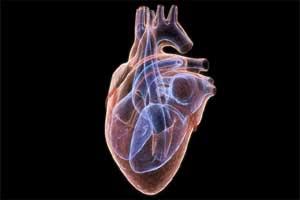- Home
- Editorial
- News
- Practice Guidelines
- Anesthesiology Guidelines
- Cancer Guidelines
- Cardiac Sciences Guidelines
- Critical Care Guidelines
- Dentistry Guidelines
- Dermatology Guidelines
- Diabetes and Endo Guidelines
- Diagnostics Guidelines
- ENT Guidelines
- Featured Practice Guidelines
- Gastroenterology Guidelines
- Geriatrics Guidelines
- Medicine Guidelines
- Nephrology Guidelines
- Neurosciences Guidelines
- Obs and Gynae Guidelines
- Ophthalmology Guidelines
- Orthopaedics Guidelines
- Paediatrics Guidelines
- Psychiatry Guidelines
- Pulmonology Guidelines
- Radiology Guidelines
- Surgery Guidelines
- Urology Guidelines
High-carb shakes can hamper heart function

Drinking a high carbohydrate shake can have an acute and detrimental effect on heart function, scientists, including an Indian-origin researcher, have found.
Researchers studied 33 individuals who were given an acute carbohydrate load in the form of a shake.
They studied their blood levels for six hours looking for things like whether this acute metabolic challenge could alter the heart's production of atrial natriuretic peptide (ANP).
ANP is a hormone that helps the body get rid of excess salt and reduces blood pressure.
Before the participants began the study, they were normalised on a standard diet for a couple of days to remove any background dietary variability.
The findings, published in the Journal of the American College of Cardiology, showed that drinking the high-carb shake led to a 25 percent reduction in ANP in participants over the course of several hours.
If a high dietary carbohydrate load suppresses circulating ANP concentrations, this would be a disadvantage to obese individuals who have lower ANP levels to begin with.
"The carbohydrate load had a significant and notable effect on circulating ANP levels. Experimental studies suggest that it's not good to make less ANP and "Carb loading" may not be ideal for the body," said senior author Thomas Wang from Vanderbilt University Medical Center in the US.
When you take in a high-carb shake a lot of things happen, including increases in glucose and insulin.
"However, the increase in glucose appears to be the main thing driving the drop in ANP levels," Wang explained.
First author Pankaj Arora from University of Alabama at Birmingham helped to work out the novel chemical pathways that mediated the effect of glucose on heart cells.
HeartJournal of the American College of CardiologyPankaj AroraThomas WangVanderbilt University Medical Center
Source : IANSNext Story
NO DATA FOUND

Disclaimer: This site is primarily intended for healthcare professionals. Any content/information on this website does not replace the advice of medical and/or health professionals and should not be construed as medical/diagnostic advice/endorsement or prescription. Use of this site is subject to our terms of use, privacy policy, advertisement policy. © 2020 Minerva Medical Treatment Pvt Ltd